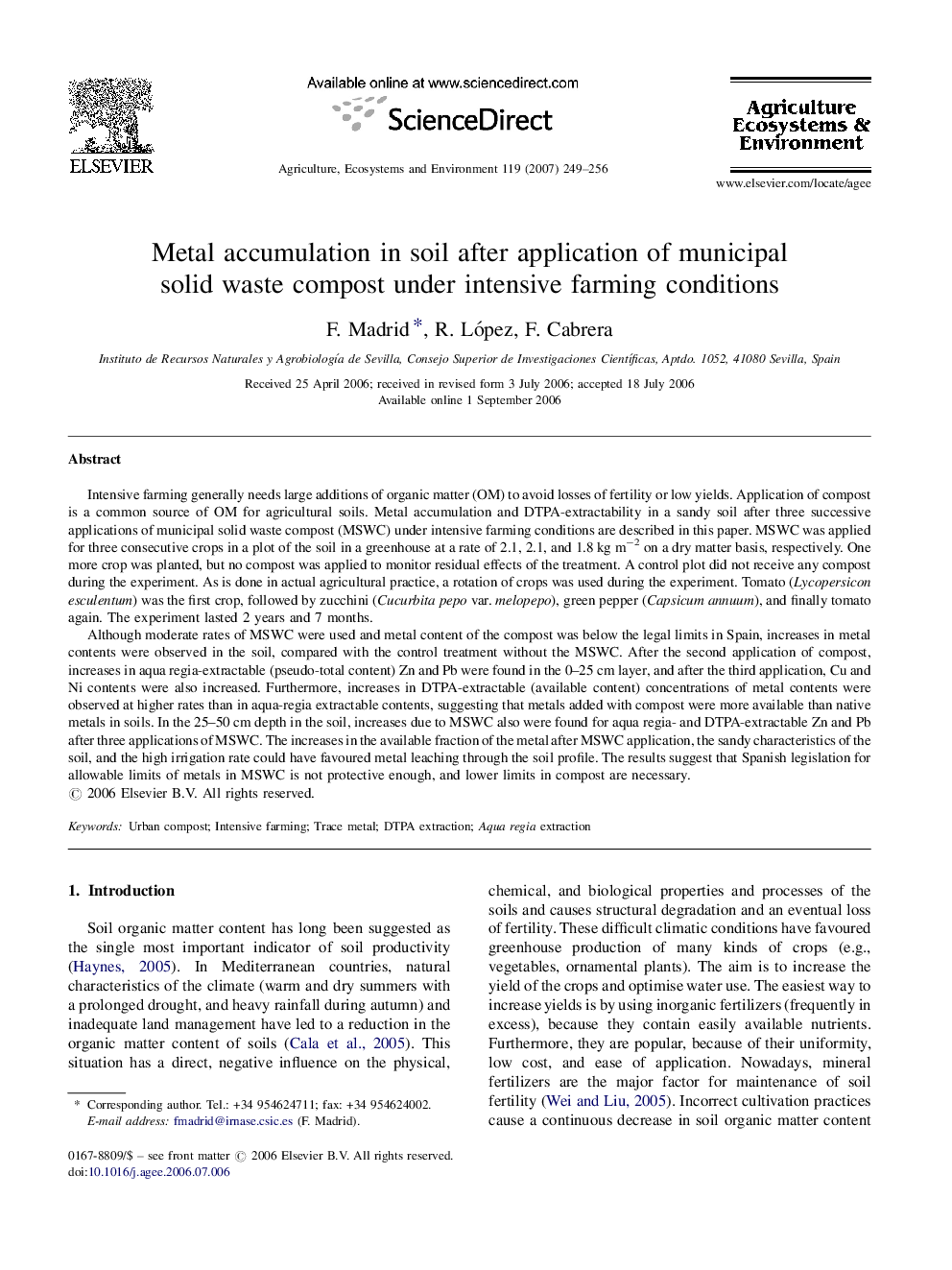| Article ID | Journal | Published Year | Pages | File Type |
|---|---|---|---|---|
| 2415848 | Agriculture, Ecosystems & Environment | 2007 | 8 Pages |
Intensive farming generally needs large additions of organic matter (OM) to avoid losses of fertility or low yields. Application of compost is a common source of OM for agricultural soils. Metal accumulation and DTPA-extractability in a sandy soil after three successive applications of municipal solid waste compost (MSWC) under intensive farming conditions are described in this paper. MSWC was applied for three consecutive crops in a plot of the soil in a greenhouse at a rate of 2.1, 2.1, and 1.8 kg m−2 on a dry matter basis, respectively. One more crop was planted, but no compost was applied to monitor residual effects of the treatment. A control plot did not receive any compost during the experiment. As is done in actual agricultural practice, a rotation of crops was used during the experiment. Tomato (Lycopersicon esculentum) was the first crop, followed by zucchini (Cucurbita pepo var. melopepo), green pepper (Capsicum annuum), and finally tomato again. The experiment lasted 2 years and 7 months.Although moderate rates of MSWC were used and metal content of the compost was below the legal limits in Spain, increases in metal contents were observed in the soil, compared with the control treatment without the MSWC. After the second application of compost, increases in aqua regia-extractable (pseudo-total content) Zn and Pb were found in the 0–25 cm layer, and after the third application, Cu and Ni contents were also increased. Furthermore, increases in DTPA-extractable (available content) concentrations of metal contents were observed at higher rates than in aqua-regia extractable contents, suggesting that metals added with compost were more available than native metals in soils. In the 25–50 cm depth in the soil, increases due to MSWC also were found for aqua regia- and DTPA-extractable Zn and Pb after three applications of MSWC. The increases in the available fraction of the metal after MSWC application, the sandy characteristics of the soil, and the high irrigation rate could have favoured metal leaching through the soil profile. The results suggest that Spanish legislation for allowable limits of metals in MSWC is not protective enough, and lower limits in compost are necessary.
